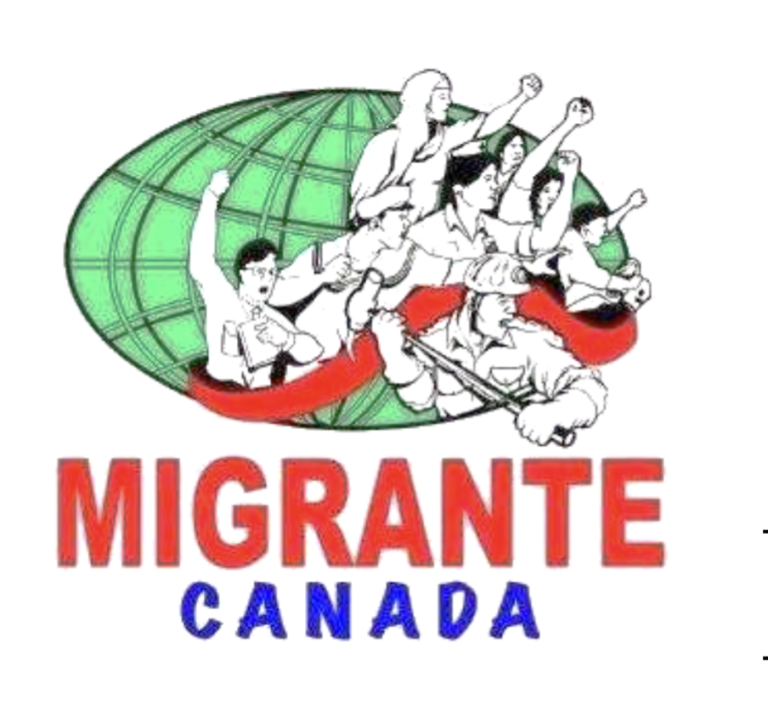
by Migrante Canada
The Canadian government announced last October 19 that it is launching CAN Work Philippines, a pilot program at Immigration, Refugees and Citizenship Canada’s visa office in Manila to “streamline work permit processing for Canadian employers recruiting in the Philippines” as part of Canada’s Indo-Pacific Strategy. Lauded as a step to further strengthen close ties between Canada and the Philippines, it is really a “partnership” for Canada to import cheap and vulnerable labour for corporate profit and for the Philippines to continue to export its labour force.
This new pilot program takes advantage of the persistent crisis in the Philippines and other countries in the Global South to secure a cheap supply of workers all too willing to fill jobs overseas to escape economic hardship. While touting superficial signs of economic prosperity based on measures such as growth in Gross Domestic Product, the Philippine government is masking the real rates of unemployment and poverty in the country.
Canada is aiming to hire ‘skilled workers’ on temporary work permits to fill critical occupations, especially in the sectors of health care, construction, and agri-food. The workers they will be recruiting are just as desperately needed in the Philippines, but the workers are forced to migrate as there are no national industries that can sustainably create local jobs. This ‘brain drain’ was made more evident during the height of the COVID-19 pandemic when nurses were being recruited overseas, which results in a massive shortage of nurses in the Philippines.
Driven out by depressed wages and poverty in the Philippines, Filipino migrant workers are likely to face the same crisis that workers in Canada are facing – wages that are below a living minimum wage vis-a-vis skyrocketing inflation; a lack of affordable and public housing; a declining health care system; and high costs of education. They join the ranks of Canadian-born and migrant workers who have been badly hit by the deteriorating economy in Canada, while social programs and services are increasingly underfunded or cut.
Worse, they will be competing with other precarious workers for jobs while facing the constant fear of losing their jobs and hence, their precarious immigration status in Canada.
Who benefits from this brain drain? Corporations and employers in Canada benefit from recruiting cheap labour that allow them to maintain or increase their profits. The Philippine government benefits as they can ease acute unemployment and at the same time avail of dollars from migrant remittances. This can also be a potential boon for unscrupulous recruitment agencies if this pilot program does not address existing gaps in oversight and laws that govern the operations of recruitment agencies.
Who loses? Filipino migrant workers bear the economic and social costs of forced migration, including having to leave their families behind.
Canada lauds the Indo-Pacific Strategy as a comprehensive framework for Canada’s engagement in the Indo-Pacific region over the next decade, including initiatives and investments of almost $2.3 billion over five years. However, this strategy is unequal and colonial especially when it comes to trade, with the Philippines always on the losing end. It prioritizes Canada’s economic interests over the interests of the Philippines and countries in the region, leading to unequal trade relationships. It does not address the rights and well-being of migrants coming to Canada.
As the alliance of Filipino migrant organizations in Canada, Migrante Canada is calling to stop the export of labour in the Philippines. We also call for the creation of decent, sustainable jobs through national industries and to address the problem of massive landlessness in the countryside through a genuine land reform program. Only then can we end forced migration. ###
